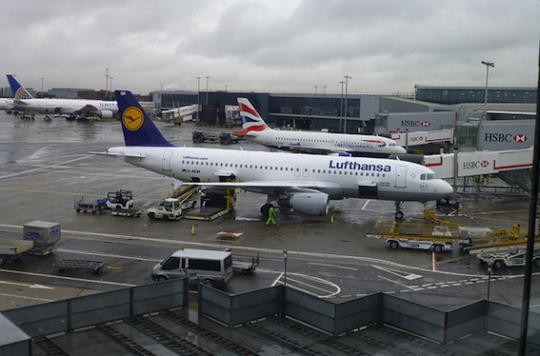More than a year after the suicide of pilot Andreas Lubitz, American researchers suggest that many pilots currently in service are depressed.

The Germanwings drama is still on everyone’s mind. On March 24, 2015, Andreas Lubitz, pilot of the German company Germanwings, committed suicide by throwing an A320 into the French Alps, killing 149 passengers and crew. The months of investigation following the disaster revealed that the young pilot suffered from severe depression and psychosis.
A heavy diagnosis that will make one of his doctors say that he hoped never to get on a plane piloted by his patient. But Andreas Lubitz is not the only airline pilot who suffers from this disorder and takes control of a plane every day.
A study published in Environmental Health shows that hundreds of pilots around the world still in service are said to be suffering from depression.
Pilots from all over the world interviewed
Researchers at Harvard TH Chan School sent an anonymous questionnaire to more than 3,500 pilots in 50 different countries. Some 1,840 of them agreed to respond. This is the first time that such a study has been carried out.
Usually, researchers rely on accident reports or medical records. But this information is complicated to obtain and does not always reflect reality. Pilots are indeed strongly encouraged to hide their depressive disorders, explain the authors.
However, “we have discovered that many pilots are affected by depressive episodes, and they may not seek treatment for fear of the negative impacts that this could have on their career, underlines Joseph Allen, one of the authors. There is a veil of secrecy surrounding mental health disorders in the cockpit. By using an anonymous study, we were able to overcome the fears of pilots related to stigma and discrimination at work ”.

Of the respondents, almost half were Americans. Followed by Canadians, Australians and Europeans. Of the 1,840 pilots, 12.6% reported symptoms of depression (sadness, loss of pleasure…) and 4.1% said they had thoughts of suicide during the past two weeks. Among the 1,430 pilots who took control of an airplane in the previous week, the prevalence of depression was even 13.5%.
These proportions are much higher than those observed in the general population. In France, in 2010, the Inpes Health Barometer showed that 7.5% of French people aged 15 to 85 were depressed, and 3.9% of this age group admitted to having “thought of committing suicide. »In the last 12 months.
Improve pilot monitoring
The US study also shows that male pilots are more likely to experience “almost every day” a loss of interest, a feeling of failure, difficulty concentrating and that it would be better if they were dead. Conversely, women were more often affected by one of these symptoms at least once a day during the previous month. They were also more likely to be diagnosed with depression.
In addition, depressive illnesses were more often detected in pilots consuming high doses of sleeping pills as well as those who had been victims of moral or sexual harassment.
For the researchers, these data underscore the importance of accurately assessing the mental health of pilots, “a profession responsible for the lives of thousands of people every day”, and improving prevention measures.
.
















